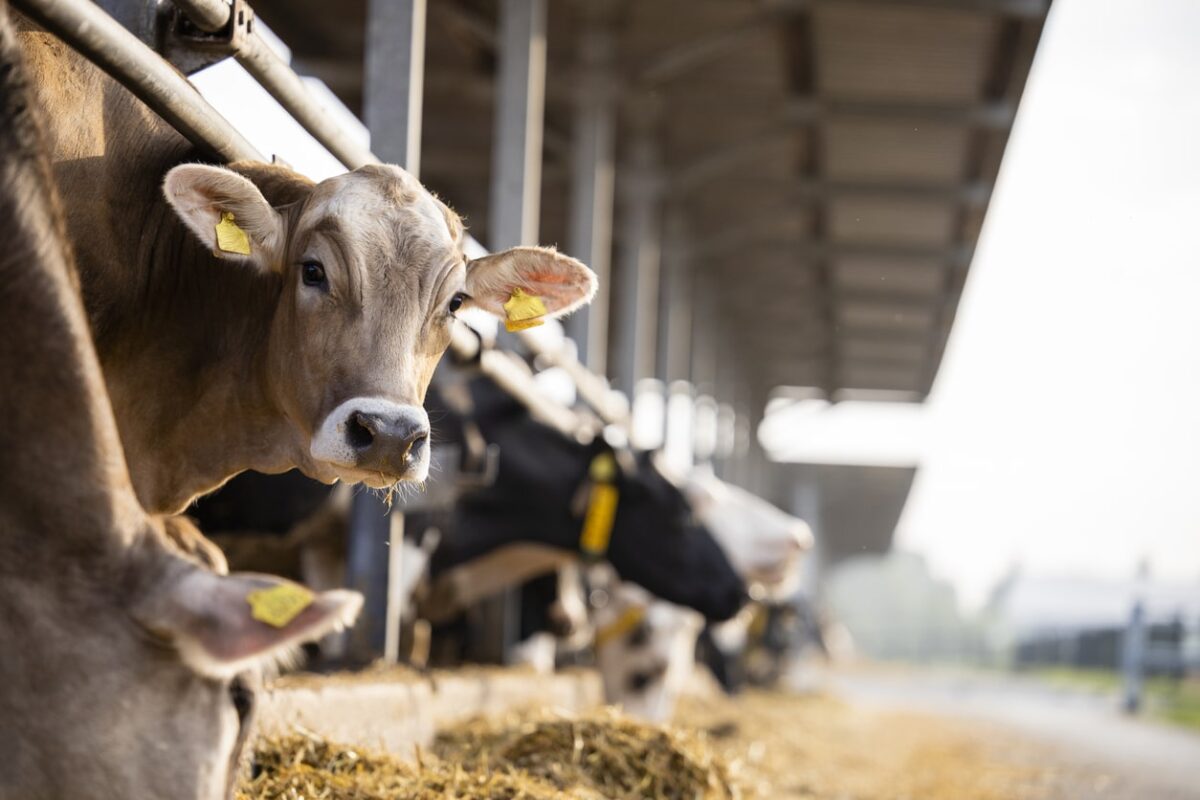Overview:
- Michigan's top environmental regulator lays out new rules for waste from livestock facilities.
- This waste can carry contaminants like E.Coli, phosphorus and nitrates, leading to harmful algal blooms in nearby waterways and polluting nearby drinking water.
- “Our waters inspired the motto ‘Pure Michigan’ and support a $13.9 billion outdoor recreation economy,” says Michigan Environmental Council's Megan Tinsley.
by KYLE DAVIDSON
Michigan Advance
After meeting in August to hear arguments on updates to how the state permits large-scale animal feeding operations, Phil Roos, the director of the Michigan Department of Environment, Great Lakes and Energy, issued his final opinion Wednesday, laying out new terms for how the state permits livestock facilities.
Clean water advocates have applauded the new requirements, while agricultural industry representatives have begun exploring legal options to challenge Roos’ decision.
While the department put forth the new general permit in 2020, a string of legal challenges have kept the permit from taking effect. EGLE is required to issue new permits every five years, leaving the state to operate under the conditions of its 2015 permit for the past decade.
According to a 2024 report from the Environmental Law and Policy Center, which argued in favor of stricter permit requirements, the 290 confined animal feeding operations in the state produce 62.7 million pounds of waste daily, with many dairy and hog farms storing liquid waste in lagoons, which third parties apply to crop fields as fertilizer.

This waste can carry contaminants like E.Coli, phosphorus and nitrates, leading to harmful algal blooms in nearby waterways and polluting nearby drinking water.
In his decision, Roos agreed with EGLE attorneys’ recommendations to reinstate a ban spreading animal waste on snow-covered ground that was previously stripped from the permit by an administrative law judge. Under Roos’ final decision, concentrated animal feeding operations cannot apply their waste to land as fertilizer in January, February and the first two weeks of March.
The judge’s decision to remove this provision was not based on science or the department’s mandate to ensure compliance with water quality standards, but rather “convenience to farmers,” Roos said.
Roos also approved a ban on feeding operations giving away animal waste during the winter months.
Roos’ determination also permits EGLE to impose site-specific regulations for industrial feeding operations in watersheds that do not meet the state’s water quality standards, and individualized ground water monitoring requirements.
He also modified the 2020 permit’s date of issuance for the permit to expire five years from his Oct. 29, 2025 final decision.
While the decision did not adopt every recommendation put forth by EGLE and the many environmental advocacy groups who sought tighter protections, the decision was hailed by many of the intervenors as a step in the right direction for water quality.
“The legal and administrative challenges to this commonsense permit have wasted five years, during which [these feeding operations] were allowed to keep polluting Michigan’s waters,” Katie Garvey, a senior attorney at the Environmental Law and Policy Center, said in a statement.
“Now it’s time for the [feeding operations] to step up, be good neighbors, and stop the endless legal wrangling. EGLE must now take swift action to implement the new [concentrated animal feeding operation] water permit.”
Megan Tinsley, the water policy director for the Michigan Environmental Council, similarly called for a quick implementation of the permit’s new provisions, noting that more rivers and streams are impaired each year while water bodies cannot be used for their designated uses, like swimming.
“Our waters inspired the motto ‘Pure Michigan’ and support a $13.9 billion outdoor recreation economy,” Tinsley said. “EGLE must quickly implement the provisions in this long-overdue permit to prevent further degradation.”
The Michigan Farm Bureau, which has led the opposition to the permit changes, is already examining its legal options.
In an article published by Michigan Farm News, an official publication of the bureau, Laura Campbell, the group’s senior conservation and regulatory relations specialist, said Roos’ decisions would hinder farmers’ ability to provide nutrients and meet crop needs, while placing them under complex new requirements that will incur additional costs.
Both Campbell and Allison Eicher, assistant general counsel for the group, said Michigan Farm Bureau would be meeting with other industry groups and farmers to determine their next steps, with Campbell noting an appeal of the decision could be in the cards.
Michigan Advance is part of States Newsroom, a nonprofit news network supported by grants and a coalition of donors as a 501c(3) public charity. Michigan Advance maintains editorial independence. Contact Editor Jon King for questions: info@michiganadvance.com.
THE LATEST FROM PLANET DETROIT
With SNAP benefits gone, Detroit rolls out emergency food sites
With federal SNAP benefits expired, Detroit Mayor Mike Duggan allocates $1.75 million to bolster local food pantries, aiming to shield vulnerable residents from food insecurity. The city has initiated a volunteer drive to support food distribution efforts.
25 years of fighting for Detroit transit: A conversation with TRU’s Megan Owens
After 25 years of fighting highway expansions, surviving a near-death bankruptcy crisis, and losing a regional transit millage by less than 1%, Transportation Riders United is gearing up for its next big battles: a Wayne County transit vote next summer and, eventually, a second shot at regional funding.
Utility shutoffs are ‘survival issue,’ says state rep who backs winter restrictions
Detroit residents, lawmakers, and activists gather on Detroit’s east side to push for bills targeting soaring utility costs, frequent outages, and service shutoffs.





